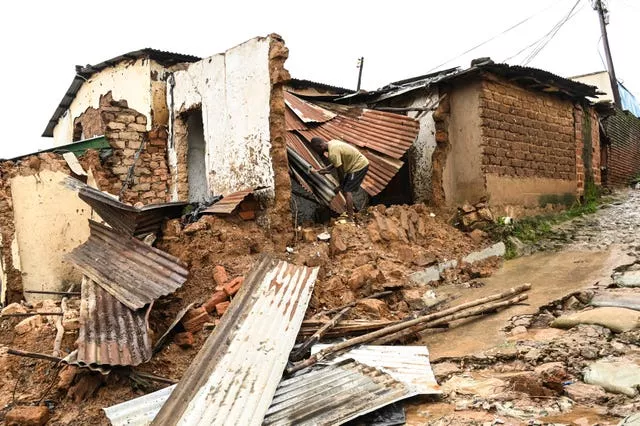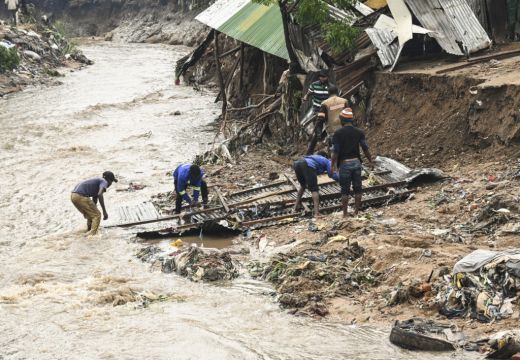Cyclone Freddy has dissipated after killing scores of people and displacing thousands in Mozambique and Malawi since late last week, although flooding remains a threat in both countries, a regional monitoring centre said.
The cyclone has killed at least 225 people in Malawi’s southern region including Blantyre, the country’s financial hub, according to local authorities. Another 88,000 people have been displaced.
In neighbouring Mozambique, officials said at least 20 people have died since the storm made landfall in the port town of Quelimane on Saturday night. More than 45,000 are still in shelters, with about 800 square miles still under water, according to the EU’s Copernicus satellite system.

“There are many casualties — either wounded, missing or dead, and the numbers will only increase in the coming days,” said Guilherme Botelho, the emergency project co-ordinator in Blantyre for Doctors Without Borders.
Malawi, which has been battling a cholera outbreak, is at risk of a resurgence of the disease, Mr Botelho said, “especially since the vaccine coverage in Blantyre is very poor”.
The aid organisation suspended outreach programmes to protect its staff against flash floods and landslides but is supporting cyclone relief efforts at a local hospital.
Freddy was initially projected to exit back to the sea on Wednesday but has since waned and is no longer classed as a tropical cyclone, the United Nations weather monitoring centre on Reunion Island said.
“The emergency will not be over for many communities as rain from upland areas continues to flood downstream areas over the coming days,” said Lucy Mwangi, country director for Malawi at the aid organisation Concern Worldwide.

“Even rich countries that are advanced democracies would have been no match for the level of destruction this cyclone has brought,” said Kim Yi Dionne, a political scientist at the University of California Riverside.
Freddy accumulated more energy over its journey across the Indian Ocean than an entire US hurricane season.
Ms Yi Dionne said the scale of damage came despite Malawi’s disaster agency having prepared and planned “for the challenges that come with our contemporary climate crisis”.
Scientists say climate change caused by mostly industrialised nations pumping greenhouse gases into the air has worsened cyclone activity, making them more intense and more frequent.
The recently ended La Nina that impacts weather worldwide also increased cyclone activity in the region.

African nations, which only contribute about 4% of planet-warming emissions, are “once again paying the steepest price to climate change, including their own lives”, said Lynn Chiripamberi, who leads Oxfam’s southern Africa humanitarian programme.
Cyclone Freddy has caused destruction in southern Africa since late February, pummelling Mozambique as well as the islands of Madagascar and Reunion last month.
“Freddy is quite an exceptional weather phenomenon,” Anne-Claire Fontan, a tropical cyclone scientific officer at the World Meteorological Organisation told the Associated Press.
Its longevity, distance covered, the number of times it has intensified and the amount of energy it accumulated over time has been extraordinary, she said.
She added that its second landfall in Mozambique “is explained by the presence of two competing steering influences. It is not rare”.
Freddy first developed near Australia in early February. The UN’s weather agency has convened an expert panel to determine whether it has broken the record for the longest cyclone in recorded history, which was set by 31-day Hurricane John in 1994.







